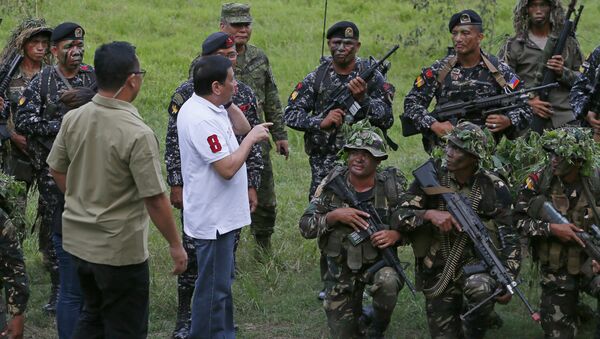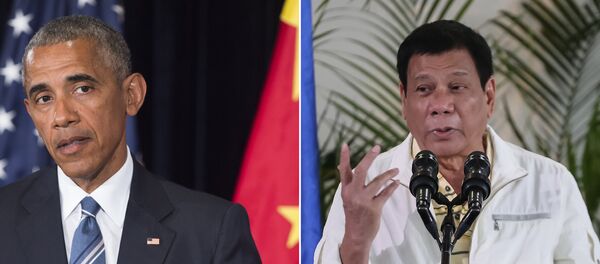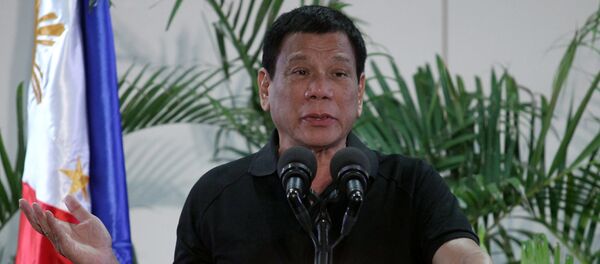The interview came after Duterte said in an interview with AP that he is ready to buy Chinese firearms even though they are "rushing it."
"China is pressing me on the firearms, which are already there. I'll accept them. They're rushing it. We don't need to ask from others because they're willing to give it. This isn't free, but it's actually a grant payable in 25 years," he said.
In November, the Philippines, which has long depended on the United States for weapons, ships and aircraft, broke off the purchase of over 26,000 US rifles for the national police force.
The Philippines was America's key ally in the region for decades, but relations saw a setback when Duterte became president.
"I think that this kind of military agreement [between Beijing and Manila] indicates that China is interested in finally getting the Philippines out of the US's strategic orbit," Richard Heydarian told Sputnik.
On the other hand, he warned that "any transition to Chinese weapons, unless these are small or light weapons, will be quiet a difficult task given that much of the Philippine military is trained by the US."
At the same time, he described the signing of a long-term Beijing-Manila agreement on arms supplies as an unprecedented event, adding that no other Philippine President in history had inked similar document. He suggested that Duterte will adhere to using the Chinese card "to threaten the US against going after him."
"President Duterte is signaling to the United States that the Philippines has an alternative in terms of purchasing arms. He will always keep the China card as a backup option with Washington, despite the new US Administration's possible change in its stance on US-Philippine ties," Heydarian said.
Meanwhile, local media has reported that a joint US-Philippine Amphibious Landing Exercise (PHIBLEX) will not be held in 2017 after a call by President Duterte for an end to the maneuvers.
Uncertainty clouded the Philippine Amphibious Landing Exercise (PHIBLEX) in October 2016, following blunt and often profane denunciations of the United States and the US-Philippine military alliance by Duterte.




